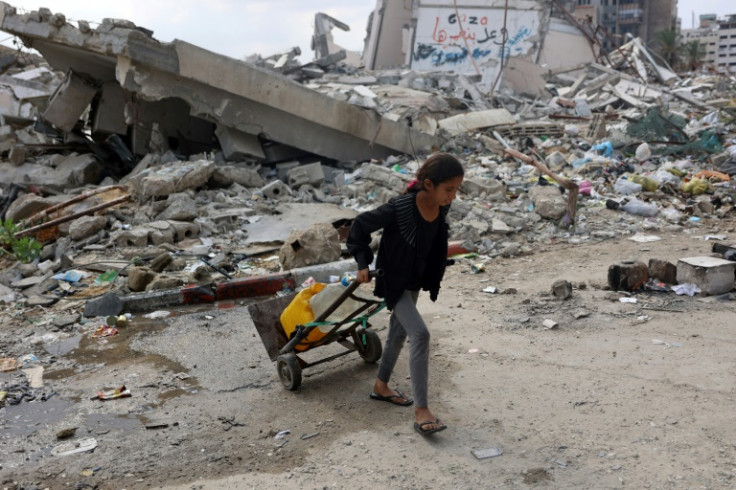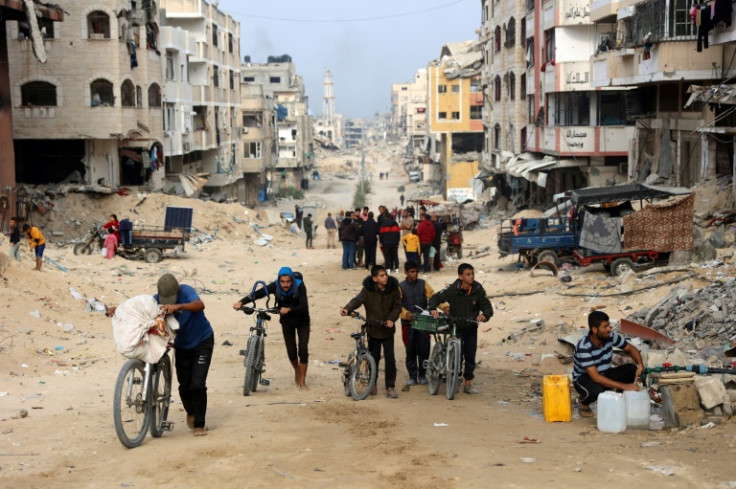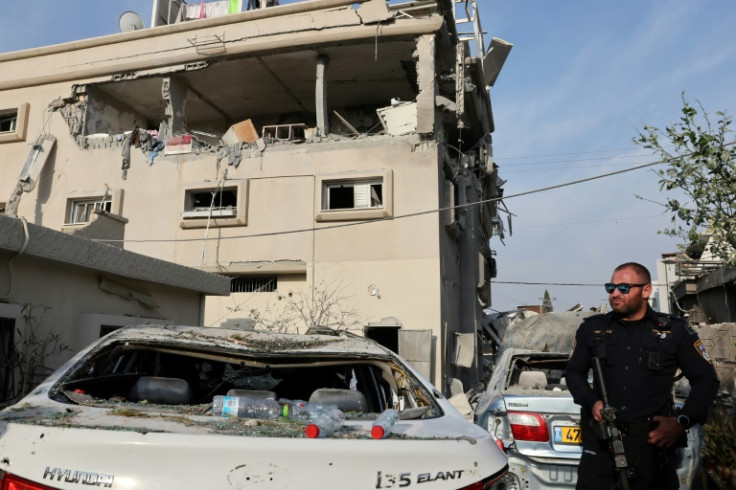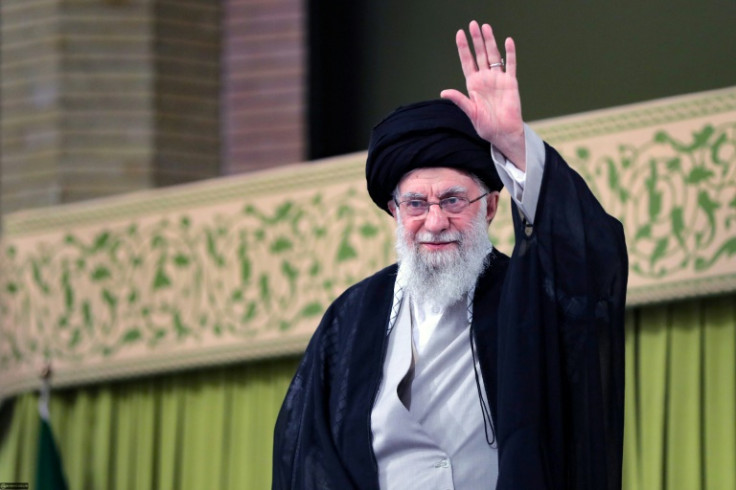
Israel on Saturday again carried out deadly air strikes on north Gaza, where the UN calls conditions "apocalyptic", as Lebanon's Hezbollah intensified rocket fire near Israel's commercial hub of Tel Aviv, on Israel's second front.
Since late September Israel has been engaged in full-scale war against Iran-backed Hezbollah in Lebanon while fighting continues against the Palestinian Islamist group Hamas, which triggered the Gaza war by attacking Israel on October 7 last year.
The war has threatened to spiral even further after Israel and Iran attacked each other over the past few months. Iran's supreme leader vowed on Saturday a further response to attacks against the Islamic republic and its allies.
Since October 6 Israeli forces have carried out a major air and ground assault on north Gaza, centred on the Jabalia area, vowing to stop attempts by Hamas militants from regrouping.
"The situation unfolding in north Gaza is apocalyptic," said a joint statement by UN agency heads.
"The area has been under siege for almost a month, denied basic aid and life-saving supplies while bombardment and other attacks continue," the heads of the humanitarian, health and other agencies said.
"The entire Palestinian population in North Gaza is at imminent risk of dying from disease, famine and violence."
Witnesses said Israeli warplanes twice hit Beit Lahia, adjacent to Jabalia, overnight.
Israel's military on Saturday said dozens of militants were killed around Jabalia "in aerial and ground activity."
Troops were also operating in central Gaza and Rafah in the territory's far south, it added, while witnesses said Israeli drones and boats opened fire on Al-Mawasi in south Gaza.
Medics and Gaza's civil defence rescuers on Saturday reported three people killed in a strike on Nuseirat, in central Gaza, a day after AFP images showed the blood-stained shrouds of several people killed there in an Israeli strike.
After nearly a year of tit-for-tat exchanges over Israel's northern border, which Hezbollah said were in support of Hamas, Israel on September 23 escalated its bombing campaign against targets in Lebanon and later sent in ground troops.
Hezbollah has since fired more deeply into Israel.
A strike in Israel's Sharon area north of Tel Aviv wounded 19 people, police said early Saturday, after the army reported three projectiles fired from Lebanon into central Israel.
Four of the wounded were "in moderate condition", the Israeli police said.
Hezbollah said it had again launched rockets at Israel's Glilot intelligence base near Tel Aviv.
AFP images from Tira, a predominantly Arab town about 25 kilometres (15 miles) northeast of Tel Aviv, showed the upper wall blown out in what appeared to be a residential building.
Several cars below were crushed.
Israel's military said a strike around the southern Lebanese city of Tyre on Friday killed two fighters "responsible for firing over 400 projectiles at Israel over the last month alone".
Late Friday, Lebanon's health ministry said 52 people had been killed in Israeli strikes in the country's east, attacks for which the Israeli army had not issued evacuation warnings.
Since the war escalated Israeli strikes have killed at least 1,911 people in Lebanon, according to an AFP tally of health ministry figures.
Israel's military says 37 soldiers have been killed in Lebanon since it began ground operations on September 30.
According to Israeli figures, at least 63 people have been killed on the Israeli side since October last year.
Fears the war could engulf the entire Middle East intensified with tit-for-tat exchanges between Israel and Iran.
On October 26, Israel bombed military targets in Iran, killing four servicemen, in retaliation for the Islamic republic's barrage of around 200 missiles against Israel on October 1. Iran had said that barrage was itself a reprisal for the killing of top militants and a general in the Revolutionary Guards.
"The enemies, both the USA and the Zionist regime, should know that they will definitely receive a tooth-breaking response to what they are doing against Iran, the Iranian nation, and the resistance front," supreme leader Ayatollah Ali Khamenei said.
He was referring to Iran-aligned groups which also include those in Yemen, Iraq and Syria.
Analysts say Israel inflicted severe damage on Iranian air defences and missile capacities and could yet launch more wide-scale action against Iran.
On Saturday the Israeli military said it had intercepted three drones over the Red Sea, after late Friday reporting seven drones had been launched from "several fronts".
Iraqi pro-Iran groups later on Saturday said they carried out a drone attack on Israel's southern port town of Eilat.
Yemen's Iran-backed Huthi rebels, who have repeatedly attacked commercial shipping in the Red Sea, are transforming themselves into a "powerful military organisation" due to "unprecedented" military support from outside sources, particularly Iran and Hezbollah, according to a UN report published Friday.
On Friday the Pentagon announced the deployment of additional resources to the Middle East, including ballistic missile defence destroyers and long-range B-52 bomber aircraft, serving as a warning to Iran.
The capabilities will begin to arrive "in coming months", a Pentagon spokesman said.
Hamas's October 7, 2023 attack resulted in the deaths of 1,206 people, mostly civilians, according to an AFP tally of Israeli official figures.
Israel's retaliatory military campaign has killed 43,259 people in Gaza, most of them civilians, according to figures from the Hamas-run territory's health ministry which the UN considers reliable.










